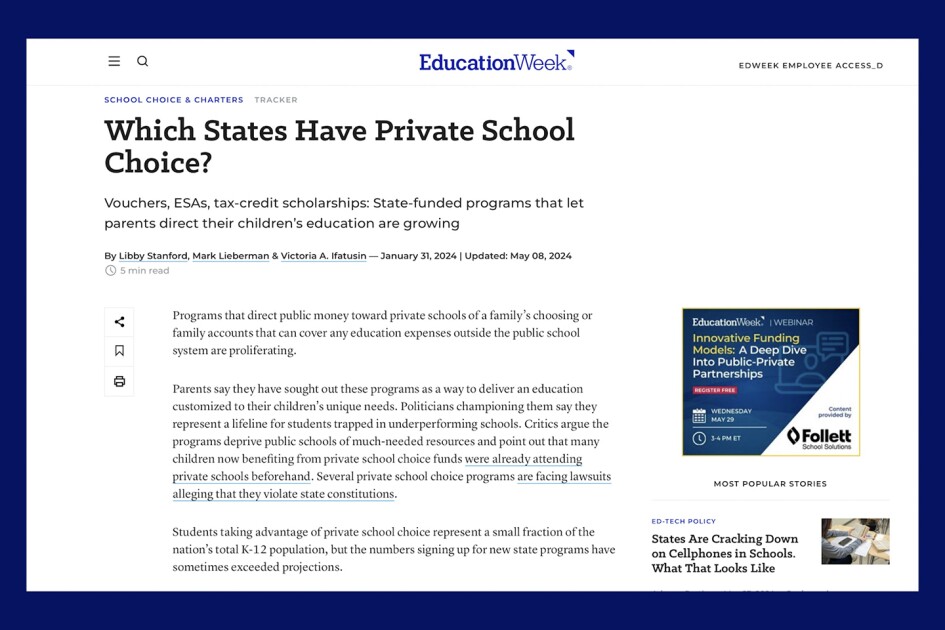Policies that provide families with public money to cover the cost of private school, homeschooling, and other educational expenses outside of the public school system continue to grow in Republican-led states.
As of May 31, 29 states and the District of Columbia had at least one private school choice policy, according to Education Week’s school choice tracker. Twelve had at least one private school choice program designed to be accessible by all or nearly all K-12 students in the state.
Those numbers could continue to grow.
Louisiana lawmakers recently advanced a bill to establish an Education Savings Account program, leaving many of the specifics to the state Board of Elementary and Secondary Education. It awaits the signature of Republican Gov. Jeff Landry, who has made it a priority to pass a private school choice bill.
And Texas Gov. Greg Abbott, a Republican, said he’ll now have the votes needed in the state legislature to pass a private school choice bill following runoff elections in which some Republican opponents of a previous education savings account bill lost their primaries to Abbott-backed opponents. Texas would be the largest state with a private school choice program if enough Republicans aligned with Abbott win in November and they pass a school choice bill.
But what exactly is school choice and what does it mean for public schools? In this video, Education Week reporter Libby Stanford explains the different types of private school choice programs and the reasons why Education Week is tracking the proliferation of these policies nationwide through its school choice tracker.
Here are the four main private school choice program types addressed in the video.
- Education Savings Accounts: These policies provide public per-pupil funds to families whose children aren’t enrolled in public schools to cover the cost of any educational expense, including private school tuition, homeschooling supplies, and tutoring services.
- Vouchers: These policies provide public per-pupil funds to families to cover the cost of private school tuition, but they don’t go so far as to cover the costs of other educational expenses like homeschooling supplies and tutoring services.
- Tax-Credit Scholarships: These policies provide tax credits to people who donate to state-authorized nonprofit organizations that provide scholarships to help families cover the costs of private school.
- Tax-Credit Education Savings Accounts: These policies provide families with a designated, per-pupil amount from a state-authorized nonprofit organization that administers the funds to cover the costs of private school tuition, tutoring, or homeschooling. As with tax-credit scholarships, the donors to these nonprofit organizations qualify for state tax credits.
Learn more about school choice policies by visiting Education Week’s school choice tracker.
2024-05-31 17:50:40
Source link

